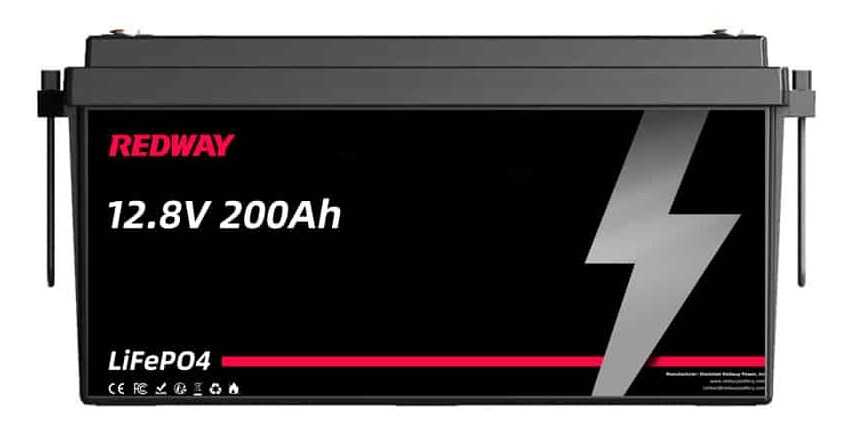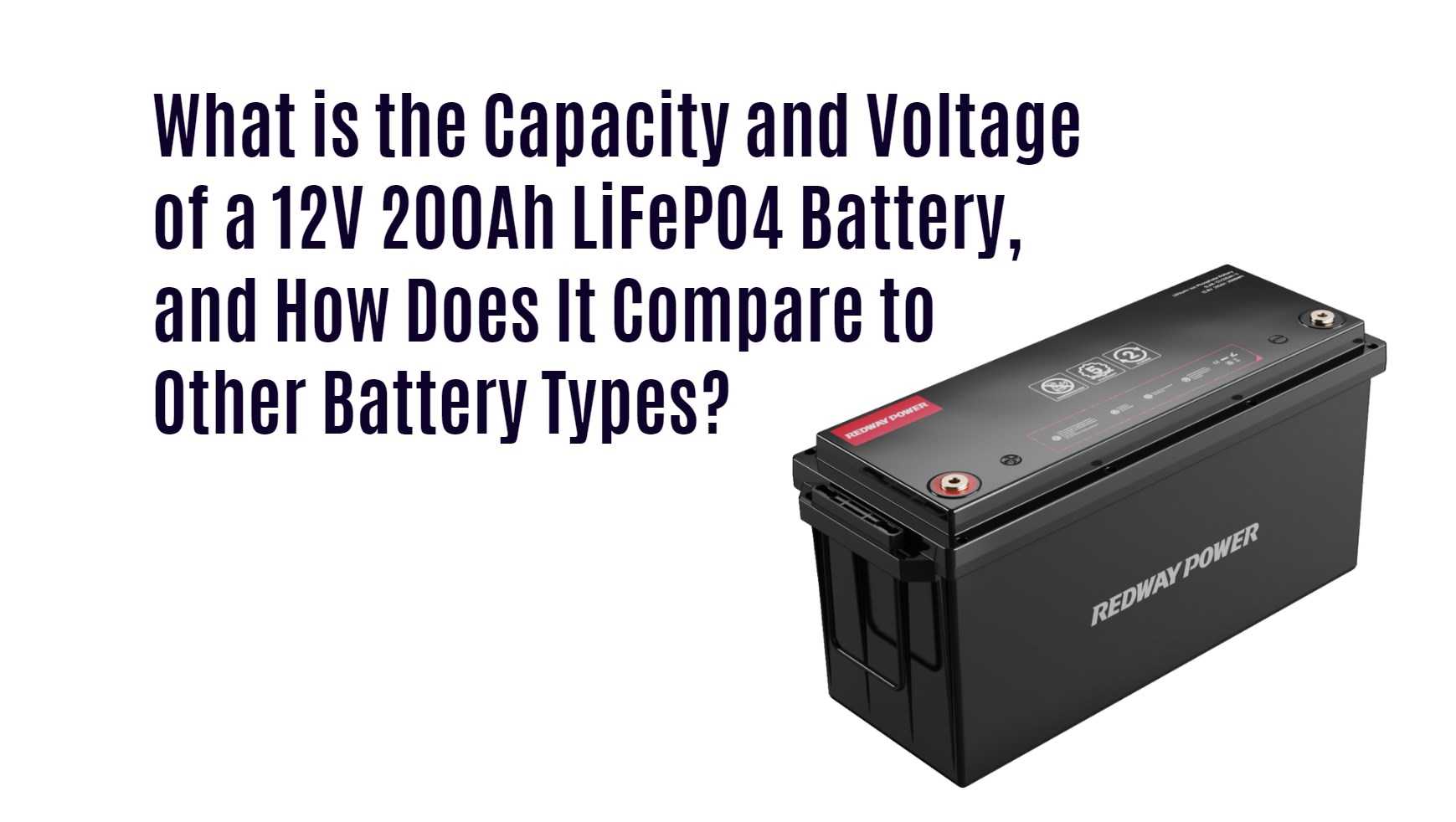A 12V 200Ah LiFePO4 battery has a capacity of 200Ah, representing the amount of charge it can deliver over a specific period. The voltage of the battery is 12V, which is the standard voltage for many off-grid and recreational applications. Enjoy reliable and sustainable power with a 12V 200Ah LiFePO4 battery for various off-grid needs.
-
Capacity:
- The capacity of a battery is measured in ampere-hours (Ah).
- A 12V 200Ah LiFePO4 battery has a capacity of 200Ah, indicating the amount of charge it can deliver over a specific period.
- This capacity determines the runtime and power availability of the battery, allowing you to power various devices and appliances.
-
Voltage:
- Voltage represents the electrical potential difference between two points in a circuit.
- A 12V 200Ah LiFePO4 battery operates at a voltage of 12 volts.
- This voltage is the standard for many off-grid and recreational applications, providing a reliable power source for various systems.
Powering Up: Capacity Explained
Powering up capacity refers to the ability of a 12V 200Ah LiFePO4 battery to deliver a specific amount of charge over a given period. With a capacity of 200Ah, this battery can supply 200 amps of current for one hour. This capacity is measured in ampere-hours (Ah) and represents the amount of charge the battery can provide. Enjoy reliable and sustainable power with a 12V 200Ah LiFePO4 battery for various applications.
-
Understanding Powering Up Capacity:
- Powering up capacity refers to the battery’s ability to deliver a specific amount of charge over a given period.
- In the case of a 12V 200Ah LiFePO4 battery, the capacity is measured in ampere-hours (Ah).
- A capacity of 200Ah means that the battery can supply 200 amps of current for one hour.
-
Ampere-Hours (Ah) Explained:
- Ampere-hours (Ah) is a unit of measurement that represents the amount of charge a battery can provide over a specific period.
- In the context of a 12V 200Ah LiFePO4 battery, it can deliver 200 amps of current for one hour.
- This capacity determines the runtime and power availability of the battery for various applications.
-
Reliable and Sustainable Power:
- With a 12V 200Ah LiFePO4 battery, you can enjoy reliable and sustainable power for a wide range of applications.
- The high capacity of 200Ah ensures a steady supply of current, allowing you to power devices and appliances for extended periods.
- Whether it’s for off-grid systems, recreational vehicles, or other applications, the 12V 200Ah LiFePO4 battery provides a dependable power source.
Voltage 101: Understanding Voltage Variance
Voltage variance is an essential aspect of understanding the performance of a 12V 200Ah LiFePO4 battery. With a stable voltage of 12 volts, this battery provides a reliable power source for various applications. Monitoring voltage variance is crucial to ensure the battery’s optimal performance and longevity. Learn more about voltage variance and its impact on LiFePO4 battery performance to maximize efficiency and reliability.
-
Voltage Variance Explained:
- Voltage refers to the electrical potential difference between two points in a circuit.
- In the case of a 12V 200Ah LiFePO4 battery, the voltage remains stable at 12 volts.
- This standard operating voltage ensures a consistent and reliable power source for various applications.
-
Importance of Monitoring Voltage Variance:
- While the voltage of a 12V 200Ah LiFePO4 battery remains constant, it is essential to monitor voltage variance.
- Voltage variance can indicate the battery’s health, performance, and charging state.
- By monitoring voltage variance, you can ensure the battery’s optimal performance and longevity.
-
Maximizing Efficiency and Reliability:
- Understanding voltage variance helps in maximizing the efficiency and reliability of the LiFePO4 battery.
- By monitoring voltage levels and addressing any significant deviations, you can optimize the battery’s performance.
- Regularly monitoring voltage variance ensures that the battery operates within the desired range and delivers reliable power.
Amp Up Your Knowledge: Comparing Battery Types
Comparing battery types, such as the 12V 200Ah LiFePO4 battery, involves considering factors like ampere-hour (Ah) rating, voltage, cycle life, energy density, and performance characteristics. By comparing these aspects, you can determine the most suitable battery type for your specific application. Make an informed decision and choose the battery that meets your power requirements efficiently.
-
Ampere-Hour (Ah) Rating:
- The ampere-hour (Ah) rating indicates the battery’s capacity to deliver a specific amount of charge over a given period.
- Comparing the Ah rating helps determine the battery’s power delivery capability and runtime.
- The 12V 200Ah LiFePO4 battery offers a high Ah rating, providing ample power for extended periods.
-
Voltage:
- Voltage refers to the electrical potential difference between two points in a circuit.
- Comparing the voltage of different battery types helps ensure compatibility with specific applications.
- The 12V 200Ah LiFePO4 battery operates at a voltage of 12 volts, suitable for various off-grid and recreational applications.
-
Cycle Life and Longevity:
- Cycle life represents the number of charge-discharge cycles a battery can undergo while maintaining optimal performance.
- Comparing the cycle life of different battery types helps assess their longevity and durability.
- The 12V 200Ah LiFePO4 battery offers a long cycle life, allowing for repeated charging and discharging without significant capacity loss.
-
Energy Density and Performance:
- Energy density refers to the amount of energy a battery can store per unit of volume or weight.
- Comparing the energy density helps evaluate the battery’s power-to-weight ratio and its suitability for specific applications.
- The 12V 200Ah LiFePO4 battery exhibits excellent energy density, providing a compact and efficient power storage solution.
How LiFePO4 Batteries Excel
LiFePO4 batteries offer a unique combination of advantages:
- High Capacity: The 200Ah rating allows for substantial energy storage, suitable for high-power demands.
- Long Lifespan: They can withstand many more charge and discharge cycles compared to lead-acid batteries, reducing long-term replacement costs.
- Stable Performance: The chemistry of LiFePO4 batteries provides a consistent output, even under stress, making them reliable for critical applications.
Choosing the Right Battery
The decision to choose a specific type of battery should be based on:
- Application Requirements: High-power applications may benefit from the high capacity and stable voltage of LiFePO4 batteries.
- Cost-Effectiveness: While LiFePO4 batteries may have a higher upfront cost, their longevity can offset this over time.
- Environmental Impact: LiFePO4 batteries are more environmentally friendly due to their longer lifespan and recyclability.
Conclusion
Understanding the capacity and voltage of a 12V 200Ah LiFePO4 battery is crucial for selecting the right power solution for your needs. LiFePO4 batteries offer a compelling blend of high capacity, stable voltage, and long-term reliability, making them an excellent choice for a variety of applications. By considering the specific requirements of your project, you can ensure that you choose the most suitable and cost-effective battery technology.
Wholesale lithium golf cart batteries with 10-year life? Check here.







